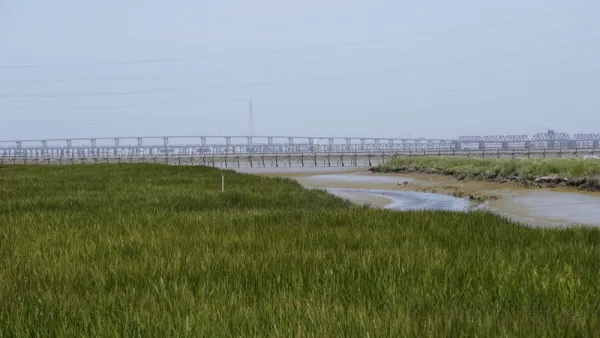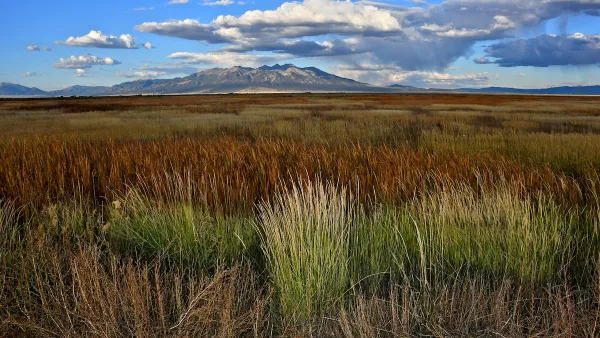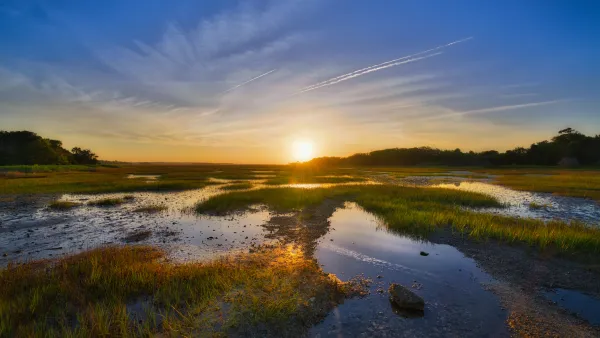The removal of federal oversight of wetlands has left millions of acres unregulated and erected major hurdles for lawmakers seeking to protect them.

After the U.S. Supreme Court’s ruling in May that the Clean Water Act does not cover wetlands, followed by a revised U.S. Environmental Protection Agency rule in August, states and tribes are struggling to enact safeguards for previously protected waters. The loss of federal rules means more than half of the nation’s 118 million acres of wetlands are now unregulated, reports Alex Brown in Stateline.
Lack of funding for existing programs and additional staff for implementation and enforcement, yearslong processes to get new regulations and programs in place, and lack of clarity around exactly which waters have lost federal oversight are three major hurdles for officials and lawmakers in states that are seeking to ensure those waters are not polluted, drained or filled in by developers. Washington, California, and New Mexico are just a few states grappling with this challenge.
“Wetlands play a crucial role in filtering pollution and nutrient runoff. They also absorb stormwater, help to recharge aquifers and provide essential habitat for many species. When wetland areas are lost, water managers say, communities may suffer from flooding, become more vulnerable to droughts or require expensive treatment plants to make water safe to drink,” writes Brown.
A few states are not impacted by the ruling, having already passed protections above and beyond the Clean Water Act, such as Minnesota’s 1991 Wetland Conservation Act. Meanwhile, conservative states see the ruling as an opportunity for developers and industry, including North Carolina, which passed a law eliminating all state protections that exceeded the federal standard.
“The whole point of the Clean Water Act was to ensure that there’s not a patchwork of regulations. Even when EPA had full jurisdiction, there were tons of enforcement issues all across the country. This is only going to exacerbate them,” Julian Gonzalez, senior legislative counsel for policy and legislation at Earthjustice, told Stateline.
FULL STORY: After Clean Water Act ruling, states that want to protect affected wetlands need millions

Analysis: Cybertruck Fatality Rate Far Exceeds That of Ford Pinto
The Tesla Cybertruck was recalled seven times last year.

National Parks Layoffs Will Cause Communities to Lose Billions
Thousands of essential park workers were laid off this week, just before the busy spring break season.

Retro-silient?: America’s First “Eco-burb,” The Woodlands Turns 50
A master-planned community north of Houston offers lessons on green infrastructure and resilient design, but falls short of its founder’s lofty affordability and walkability goals.

Test News Post 1
This is a summary

Analysis: Cybertruck Fatality Rate Far Exceeds That of Ford Pinto
The Tesla Cybertruck was recalled seven times last year.

Test News Headline 46
Test for the image on the front page.
Urban Design for Planners 1: Software Tools
This six-course series explores essential urban design concepts using open source software and equips planners with the tools they need to participate fully in the urban design process.
Planning for Universal Design
Learn the tools for implementing Universal Design in planning regulations.
EMC Planning Group, Inc.
Planetizen
Planetizen
Mpact (formerly Rail~Volution)
Great Falls Development Authority, Inc.
HUDs Office of Policy Development and Research
NYU Wagner Graduate School of Public Service




























